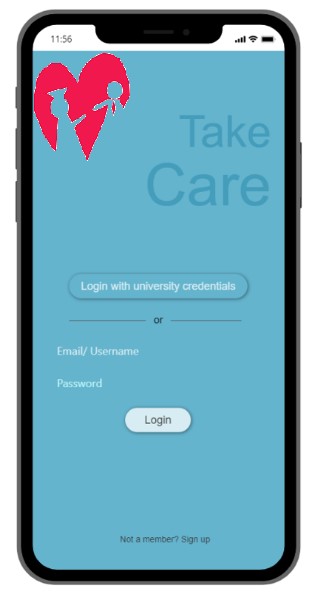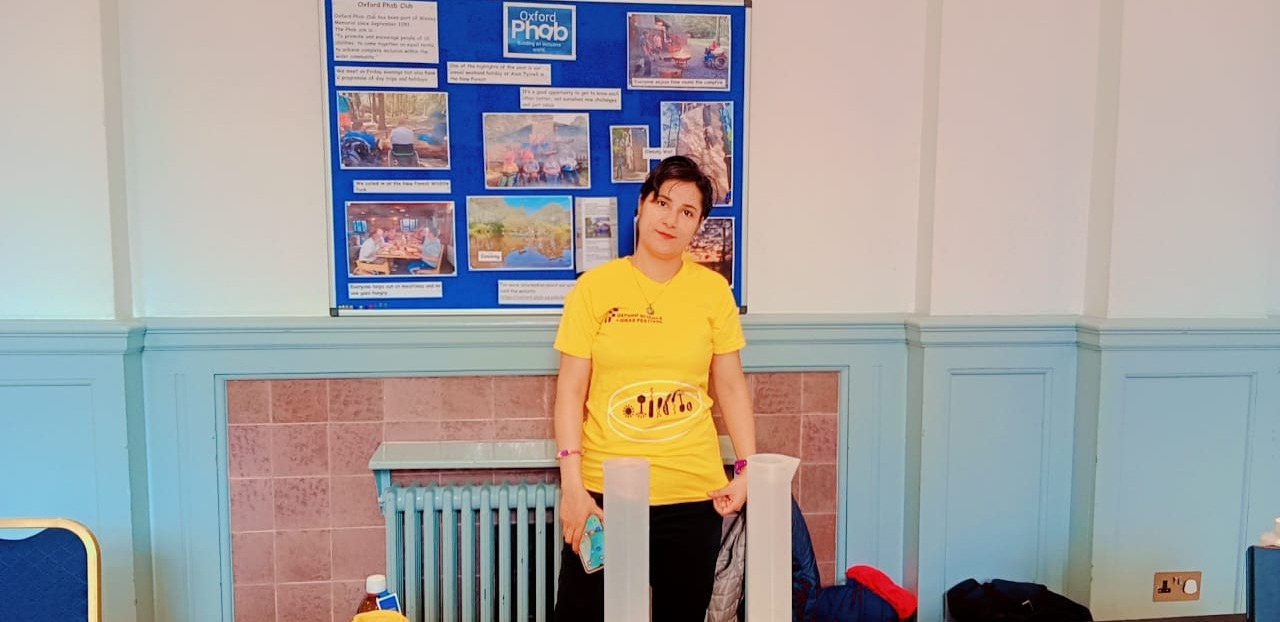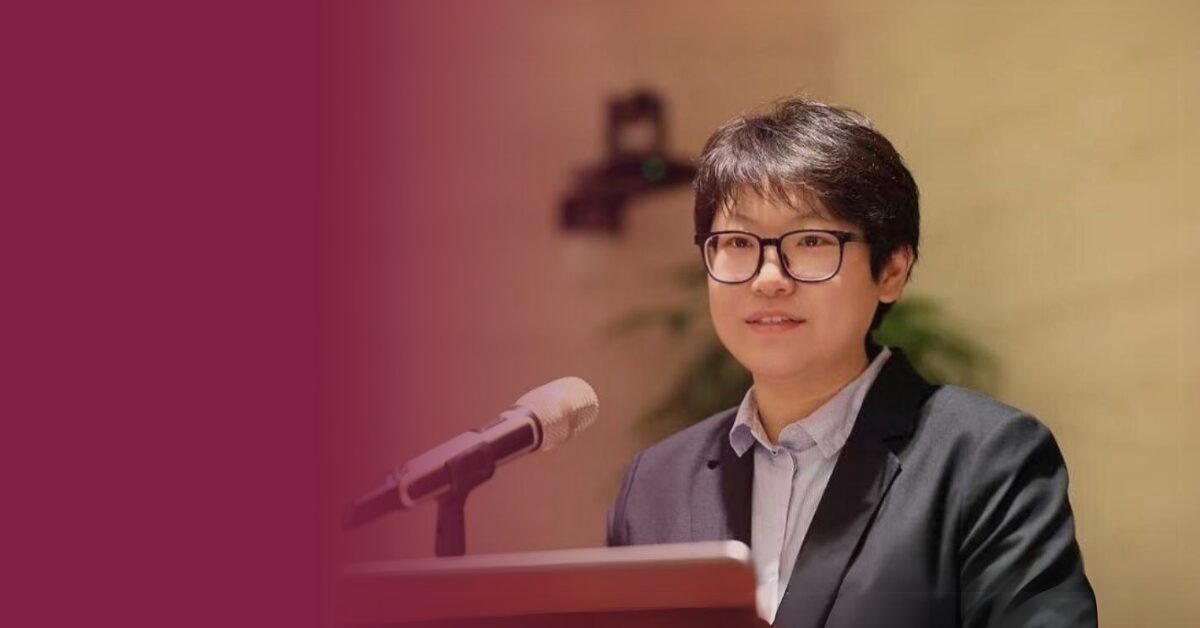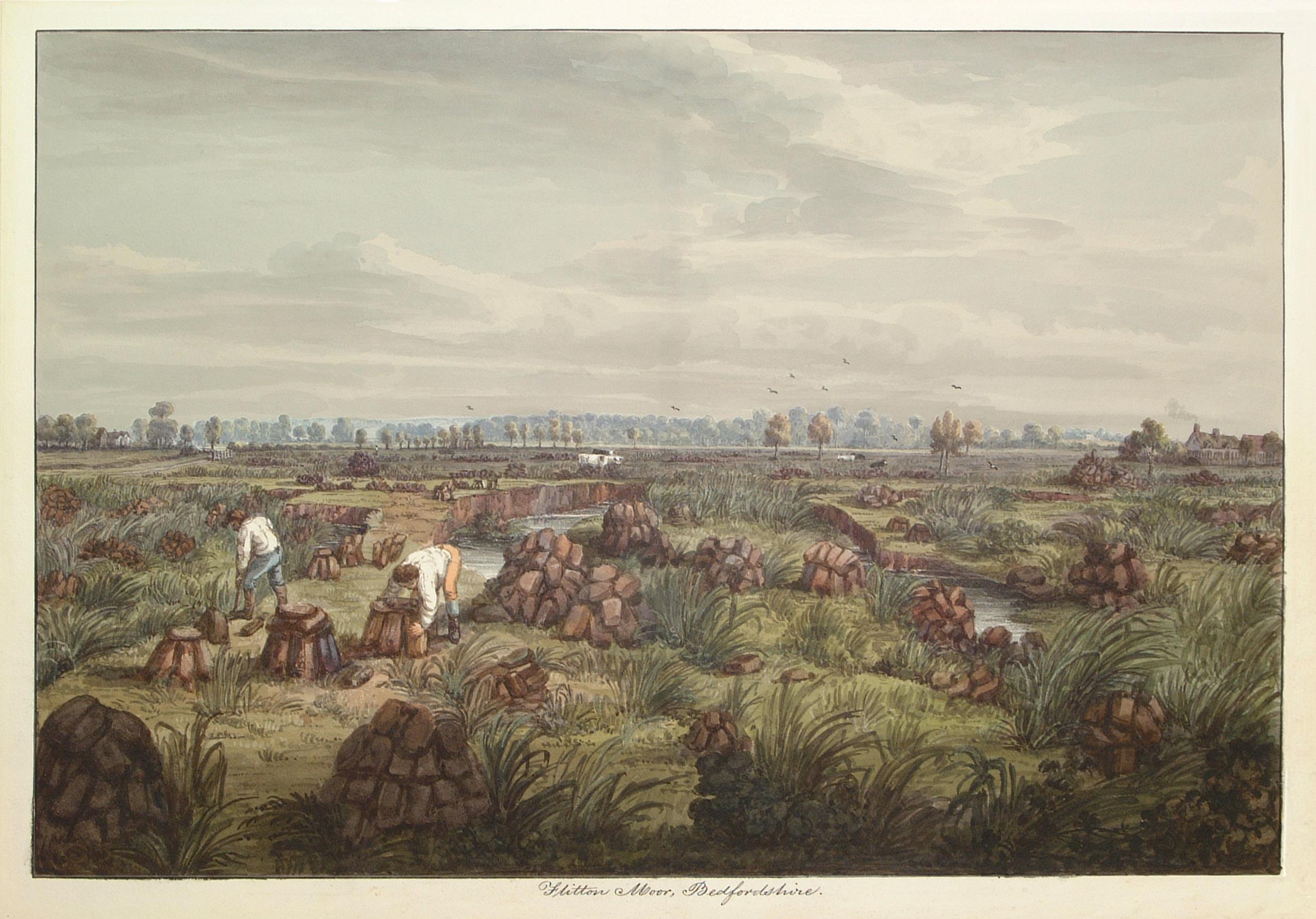#TakeCare app – for student well-being
03/07/2019

We first got the Information about the Change Agents Conference (CAN2019)/JISC Hackathon through Cranfield University intranet for registration.
Our master’s diverse four member team consisted of Carolyn Nandozi and Shafa Rahimun from Geographic Information Management MSc, Clinton Machoka from Aerospace Computational Engineering MSc, and Khadijah Abdullahi Habib from Safety and Human Factors in Aviation MSc .
Studying at Cranfield University for the past 8months has honed our communication, presentation, public speaking and many other skills while pushing us to be winners in what we do. For this reason, we were confident about the competition, focused on our best performance and representing our institution alongside some of the UK’s renowned universities.
We got the unique opportunity of selecting one from different themes centred on student and educational institution:
1. Student wellbeing
2. Student curriculum improvement
3. Responsive and welcoming campuses
4. Artificial Intelligence (AI) or Intelligent Assistants
One of the reasons why we chose students wellbeing and mental health was because this is a growing concern amongst students, especially international students as students from different cultures are not used to confronting mental and wellbeing issues as they hardly recognise their reality. Another reason was because some of us had experienced first-hand or witnessed our friends experiencing these problems, and existing apps and websites weren’t really working for us. Furthermore, there were issues of students’ time and location management including anonymity discussions in comfort to setup meetings with our students health and wellbeing centre for full utilisation of its services, which formed more gaps of analysis for solutions. Seeing similar experiences within peers and young adults in similar situations also helped us form a solution through technology. With this idea, the proposal was made by our team leader, Nandozi, to the organisers from JISC/CAN2019, and we were sent invitations and schedules for the two-day hackathon.
Arriving Tuesday, 28th May 2019, the Hackathon fell in the month of Ramadan* which made some group members take preparations for attending the competition while observing their fasts, but the organisers had considered it for appropriate arrangements.
On Wednesday, 29th May 2019, we were briefed to then starting working on our ideas at Open University. Firstly, we built on our two weeks concept preparations to fully identify the problem for the exact solutions to then discuss all relevant contents to be included in the app, colors, logos, and our target audience. The next step was to brainstorm and split the tasks amongst ourselves, this made everyone accountable and helped us work faster.
Shafa designed the application interface prototype, Clinton developed a working forum and quiz portal through web-based technologies, while Khadijah and Nandozi created contents for the app including motivational quotes, notifications which content followed students’ academic peak year ranging from welcome week, first module, first assignment, career weeks, group projects, thesis, presentations, job worries and applications until academic year end. Nandozi and Khadijah also attended the conference seminar on the mental health situation for distance learning students, which improved our knowledge and branch our focus to not only on-site students, but the abovementioned demographic as well.

#TakeCare App team hacking hard!
We had “stand up” sessions, for progress feedback. Our team also had longer night meetups to discuss our progress and pitch strategy guided by Cranfield Bettany Centre Start-up Weekends format.
There were seven teams in total, each team had only three minutes to present their idea to the audience. Our team, as representative of Cranfield University, was the sixth to present where we talked briefly about our ideas, and the prototypes were shown in our two different target devices, a iPhone and a Google Pixel handset, to the audience to give them an opportunity to go through the designed interface. #TakeCare tech brings together and provides peer to peer support by alumni, mentors and fellow students for a student’s wellbeing in real-time. The tech can be integrated into university technologies for instant access such as black board and intranet taking care of the student’s every academic step ensuring their wellbeing while boosting their achievement.
Later interactions with audiences complimented our ideas as the best! And one key point that came up consistently was the peer to peer wellbeing support and the human element in technology which is in need of prevalence in forming solutions, as seen by academics and educators.
On announcement for the winners, it was quite interestingly, there were two teams that won the competition –from UCL and our very own Cranfield! It was a very thrilling and humbling experience to win the competition, especially as for most of us it was our very first hackathon participation.
Along with prizes, we got exposure and our work by supplying the organisers with a blog post about our idea formation, development and lessons learnt. The overall occasion was extremely encouraging, as it gave us the motivation to further develop our idea into a fully formed application, while giving us the chance to represent our university and gain some new skills and experience. We also thank our university for giving us these different opportunities to further embed ourselves into extra-curricular activities, and expanding our dimensions lifelong.
Written by Khadijah Habib, Shafa Rahimun and Carolyn Nandozi.
Categories & Tags:
Leave a comment on this post:
You might also like…
My Apprenticeship Journey – Broadening Horizons
Laura, Senior Systems Engineer at a leading aircraft manufacturing company, joined Cranfield on the Systems Engineering Master’s Apprenticeship after initially considering taking a year off from her role to complete an MSc. Apprenticeship over MSc? ...
The Library app is back!
The Library app is back! It's exactly the same as before (although it will get a fresh look in a few months) and if you hadn't removed it from an existing device it should just ...
PhD researcher at the IF Oxford Science and Ideas Festival
IF Oxford is a science and ideas Festival packed with inspiring, entertaining and immersive events for people all ages. PhD researcher, Zahra attended the festival. Here she shares what motivated her to get involved. ...
What leadership skills are required to meet the demands of digitalisation?
Digital ecosystems are shifting the dynamics of the world as we know it. With digitalisation being a norm in the software industry, there is currently a rapid rise in its translation ...
My PhD experience within the Centre for Air Transport at Cranfield University
Mengyuan began her PhD in the Centre for Air Transport in October 2022. She recently shared what she is working on and how she has found studying at Cranfield University so ...
In the tyre tracks of the Edwardian geologists
In April 1905 a group of amateur geologists loaded their cumbersome bicycles on to a north-bound train at a London rail station and set off for Bedfordshire on a field excursion. In March 2024 a ...






